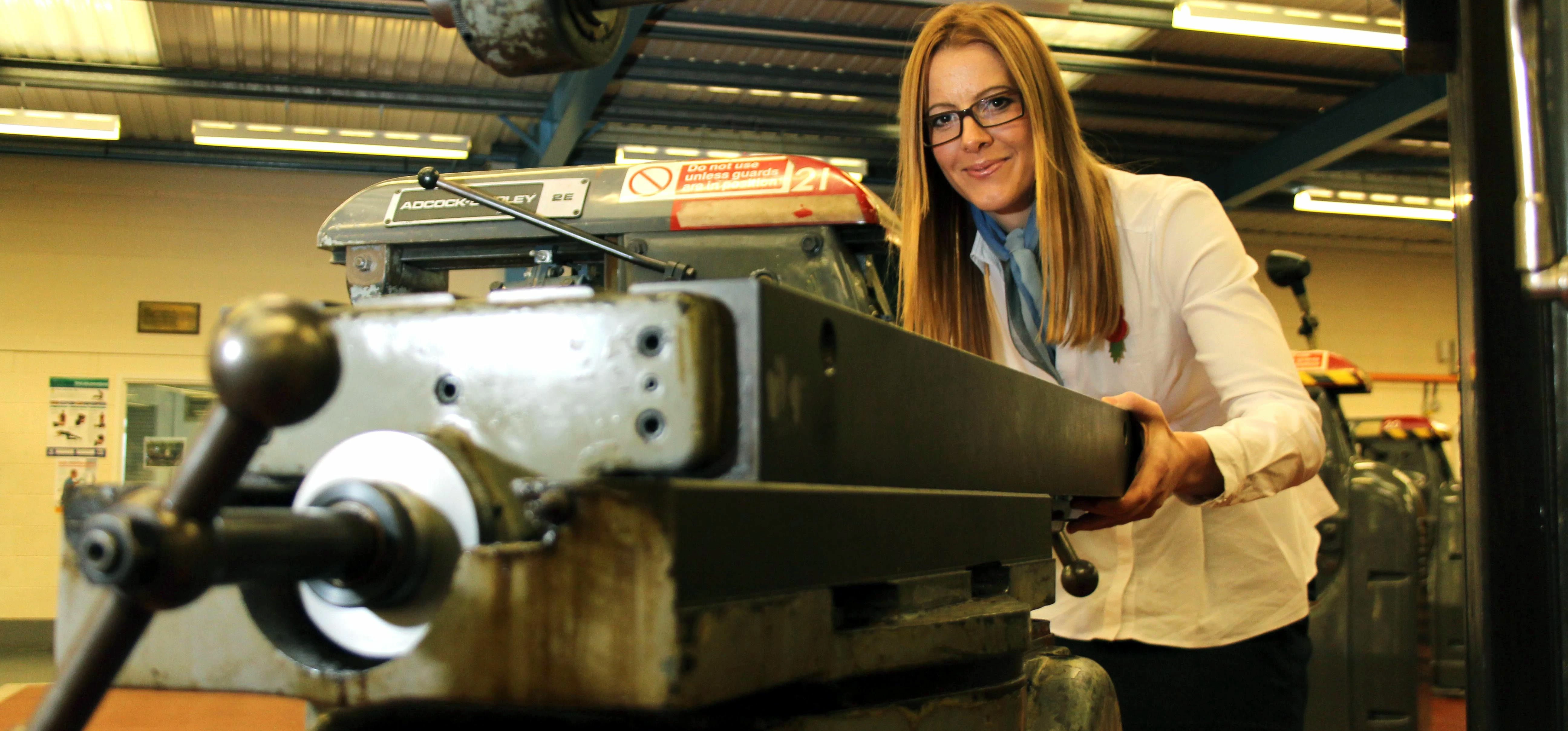
Partner Article
Training-provider’s aim to tackle female Apprenticeship problem
One of the region’s best-known training-providers is making a conscious effort to get more girls into Apprenticeships after alarming government figures reveal the UK is trailing several European countries when it comes to recruiting females.
Kate Chapman has just been appointed the new business development manager for SW Durham Training (SWDT), based on Aycliffe Business Park in County Durham.
The 33-year-old began her career as an Apprentice in fabrication and welding with SWDT – formerly known as South West Durham Training – after persuading her parents to let her dump A-levels in favour of earning while learning.
She still ended up gaining a University qualification via the Apprenticeship route and went on to forge a hugely-successful career for herself – holding leading positions for engineering firms in Holland and Sweden – she turned full circle when she returned to SWDT in October 2012, initially as business development co-ordinator.
Now Kate is hoping SWDT can turn the tide for the region by encouraging more girls to follow in her footsteps.
“I believe passionately about Apprenticeships for girls and boys as a fantastic career path,” says Kate.
“Under representation of female in STEM subjects is not unique to SWDT. It’s a national problem. The UK has the lowest number of female engineers in the whole of Europe.
“The Government is looking at ways of trying to remedy the problem and we’re embracing that.”
EngineeringUK carried out a recent review of the data relating to women in engineering and technology and identified UKRC research that showed that only 9% of UK engineering professionals are women compared to 18% in Spain, 26% in Sweden and 20% in Italy.
A Commons Select Committee has also recently held an inquiry to review evidence submitted to address the issues.
Kate added: “We have a noticeable disproportion in male to female learners’ at SWDT which currently stands at a 4:1 ratio.
“We have recognised this as an area for improvement, not only to tackle the gender bias issues, but as area for recruitment to address the engineering skills shortage as a whole.
“We have some clear targets and actions that we will be conducting, including a review of all promotion materials to show images of all learner groups via website, course brochures, programme leaflets and posters.
“We also plan to proactively organise promotional events to help promote awareness in the local area, and we’ll look to local industry and education for support in this.”
This was posted in Bdaily's Members' News section by Martin Walker .
Enjoy the read? Get Bdaily delivered.
Sign up to receive our daily bulletin, sent to your inbox, for free.








 Raising the bar to boost North East growth
Raising the bar to boost North East growth
 Navigating the messy middle of business growth
Navigating the messy middle of business growth
 We must make it easier to hire young people
We must make it easier to hire young people
 Why community-based care is key to NHS' future
Why community-based care is key to NHS' future
 Culture, confidence and creativity in the North East
Culture, confidence and creativity in the North East
 Putting in the groundwork to boost skills
Putting in the groundwork to boost skills
 £100,000 milestone drives forward STEM work
£100,000 milestone drives forward STEM work
 Restoring confidence for the economic road ahead
Restoring confidence for the economic road ahead
 Ready to scale? Buy-and-build offers opportunity
Ready to scale? Buy-and-build offers opportunity
 When will our regional economy grow?
When will our regional economy grow?
 Creating a thriving North East construction sector
Creating a thriving North East construction sector
 Why investors are still backing the North East
Why investors are still backing the North East